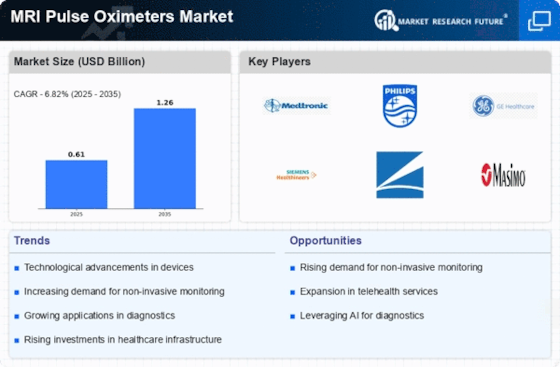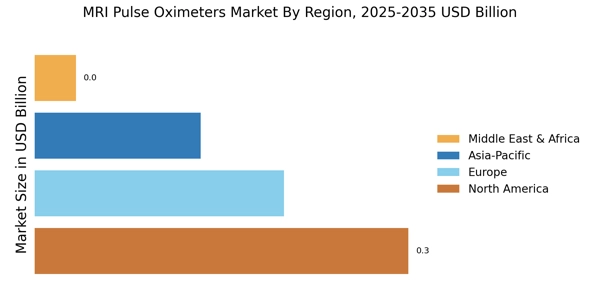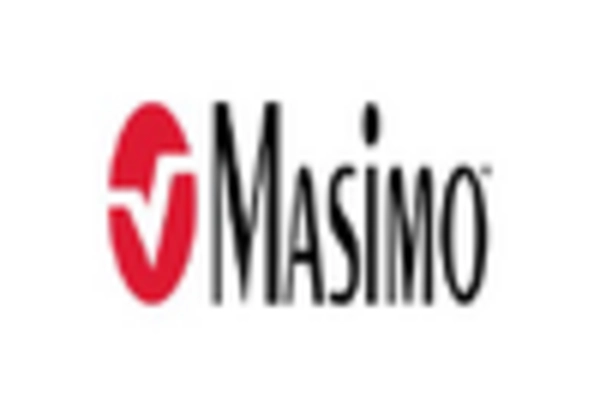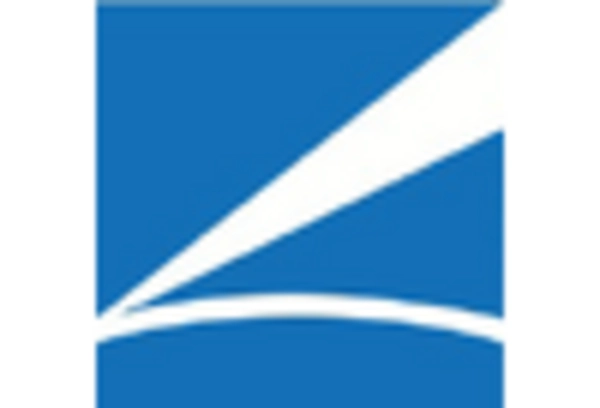Expansion of MRI Facilities
The expansion of MRI facilities worldwide is a pivotal driver for the MRI Pulse Oximeters Market. As healthcare providers invest in advanced imaging technologies, the demand for compatible monitoring devices is also on the rise. New MRI centers are being established, particularly in underserved regions, to improve access to diagnostic imaging services. This expansion is likely to create a corresponding need for MRI-compatible pulse oximeters, as clinicians require reliable tools to monitor patients during scans. The market is projected to grow as more facilities recognize the importance of integrating advanced monitoring solutions into their operations, thereby enhancing patient care and operational efficiency.
Growing Geriatric Population
The aging population is a crucial factor contributing to the expansion of the MRI Pulse Oximeters Market. As individuals age, they often experience a higher incidence of chronic health conditions, including cardiovascular and respiratory diseases, which necessitate regular monitoring of oxygen levels. The demand for MRI-compatible pulse oximeters is likely to increase as healthcare systems adapt to the needs of an older demographic. Projections indicate that by 2030, the number of individuals aged 65 and older will significantly rise, further driving the need for effective monitoring solutions in MRI settings. This demographic shift presents a substantial opportunity for manufacturers to innovate and cater to the specific requirements of geriatric patients.
Increased Focus on Patient Safety
Patient safety remains a paramount concern within the healthcare sector, significantly influencing the MRI Pulse Oximeters Market. The need for accurate and reliable monitoring during MRI procedures is critical, as fluctuations in oxygen saturation can lead to severe complications. Regulatory bodies are emphasizing the importance of high-quality medical devices, which has led manufacturers to enhance the safety features of their products. This heightened focus on patient safety is driving healthcare providers to adopt advanced MRI-compatible pulse oximeters that comply with stringent safety standards. Consequently, the market is expected to witness robust growth, as hospitals and clinics prioritize investments in technologies that ensure optimal patient care.
Rising Prevalence of Respiratory Disorders
The increasing prevalence of respiratory disorders is a significant driver for the MRI Pulse Oximeters Market. Conditions such as chronic obstructive pulmonary disease (COPD) and asthma necessitate continuous monitoring of oxygen levels, particularly in patients undergoing MRI procedures. According to recent health statistics, respiratory diseases account for a substantial portion of global morbidity, prompting healthcare facilities to invest in reliable monitoring equipment. The demand for MRI-compatible pulse oximeters is expected to rise as clinicians seek to ensure patient safety and optimize treatment outcomes. This growing need for effective monitoring solutions is likely to propel the MRI Pulse Oximeters Market forward, with an anticipated market value reaching several billion dollars in the coming years.
Technological Innovations in MRI Pulse Oximeters
The MRI Pulse Oximeters Market is experiencing a surge in technological innovations that enhance the accuracy and efficiency of oxygen saturation monitoring. Advanced sensor technologies, such as photoplethysmography and improved signal processing algorithms, are being integrated into MRI-compatible pulse oximeters. These innovations not only improve the reliability of readings during MRI scans but also reduce the risk of artifacts that can compromise patient safety. As a result, healthcare providers are increasingly adopting these advanced devices, leading to a projected growth rate of approximately 8% annually in the MRI Pulse Oximeters Market. This trend indicates a strong demand for cutting-edge solutions that meet the evolving needs of medical professionals.


















